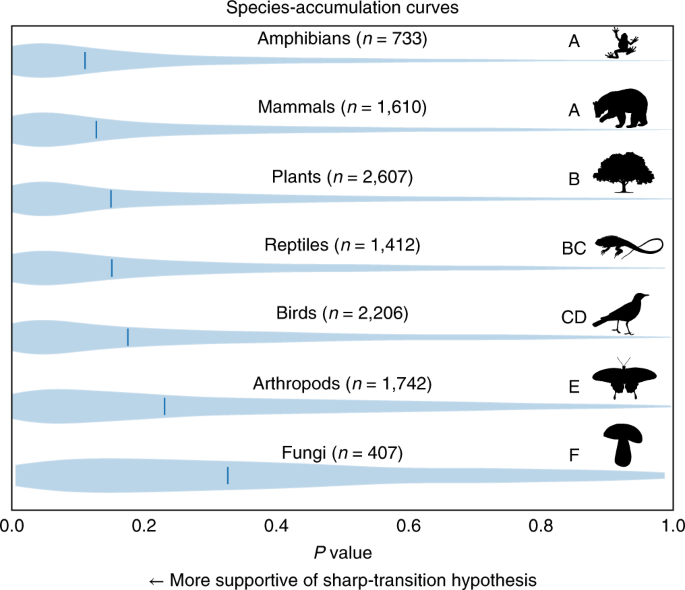
Abstract: "A foundational paradigm in biological and Earth sciences is that our planet is divided into distinct ecoregions and biomes demarking unique assemblages of species. This notion has profoundly influenced scientific research and environmental policy. Given recent advances in technology and data availability, however, we are now poised to ask whether ecoregions meaningfully delimit biological communities. Using over 200 million observations of plants, animals and fungi we show compelling evidence that ecoregions delineate terrestrial biodiversity patterns. We achieve this by testing two competing hypotheses: the sharp-transition hypothesis, positing that ecoregion borders divide differentiated biotic communities; and the gradual-transition hypothesis, proposing instead that species turnover is continuous and largely independent of ecoregion borders. We find strong support for the sharp-transition hypothesis across all taxa, although adherence to ecoregion boundaries varies across taxa. Although plant and vertebrate species are tightly linked to sharp ecoregion boundaries, arthropods and fungi show weaker affiliations to this set of ecoregion borders. Our results highlight the essential value of ecological data for setting conservation priorities and reinforce the importance of protecting habitats across as many ecoregions as possible. Specifically, we conclude that ecoregion-based conservation planning can guide investments that simultaneously protect species-, community- and ecosystem-level biodiversity, key for securing Earth’s life support systems into the future."
Read More: https://www.nature.com/articles/s41559-018-0709-x
No comments:
Post a Comment